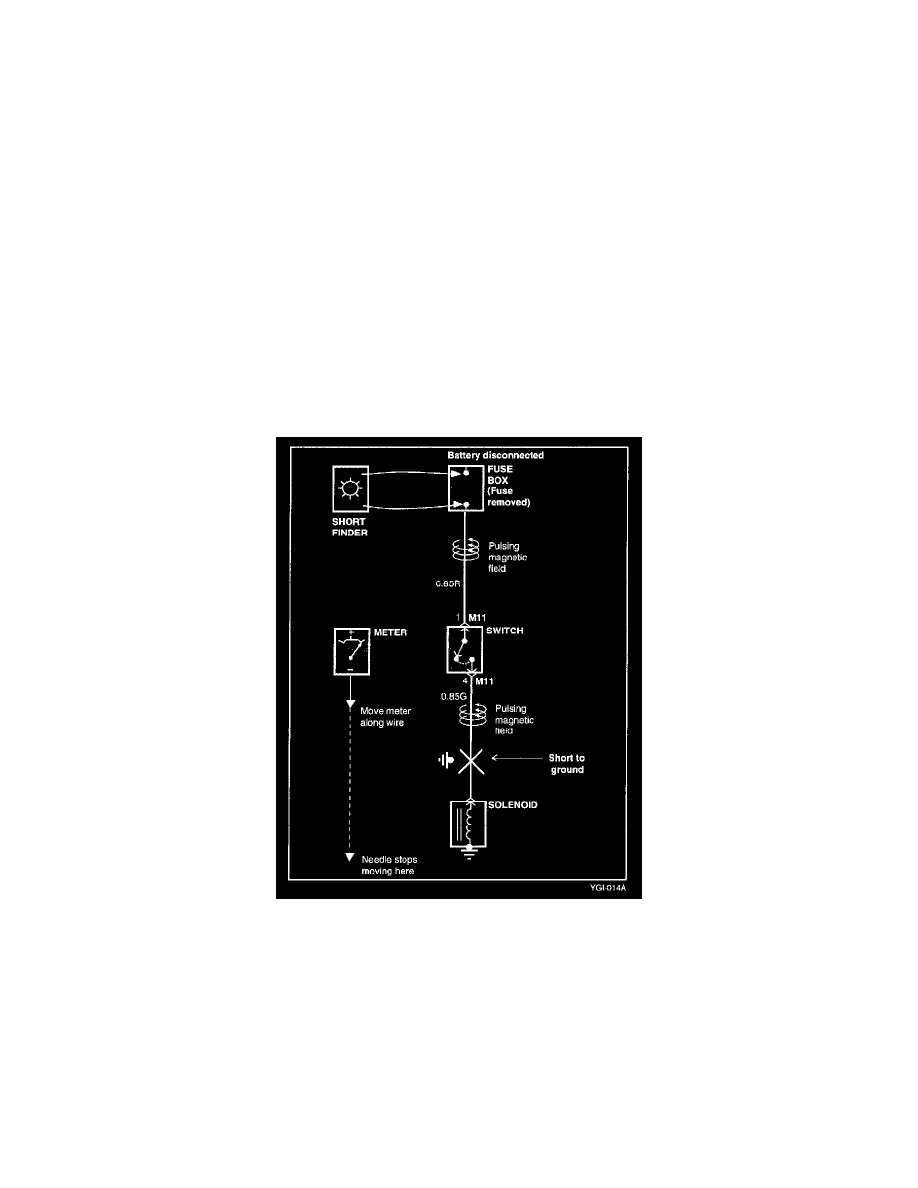Scoupe L4-1468cc 1.5L SOHC VIN J MFI (1994)

Use a self powered test lamp or a ohmmeter to check for continuity. Self powered test lamp is made of a bulb, battery and two leads and is used only on
an unpowered circuit. If the leads are touched together, the lamp will go ON. Prior to checking the points, first disconnect the battery ground cable or
remove the fuse which feeds the circuit you are working on.
CAUTION
Never use a self powered test lamp on circuits that contain solid state units. Damage to these units may result.
An ohmmeter can be used in place of a self powered test lamp. The ohmmeter shows how much resistance there is between two points along a circuit.
Low resistance means good continuity.
Circuits which include any solid-state devices should be tested only with at 10 Mega Ohm or higher impedance digital multimeter. When measuring
resistance with a digital multimeter, battery negative terminal should be disconnected. Otherwise, there may be incorrect readings. Diodes and solid-state
devices in a circuit can make an ohmmeter give a false reading. To find out if a component is affecting a measurement, take one reading, reverse the
leads and take a second reading. If the readings differ, the solid-state device is affecting the measurement.
Short Finder
Short finder is available to locate short to a ground. The short finder creates a pulsing magnetic field in the shorted circuit and shows you the location of
the short through body trim or sheet metal.
Testing For A Short With A Short Finder
1. Remove the blown fuse. Leave the battery connected.
2. Connect the short finder across the fuse terminals.
3. Close all switches in series in the circuit you're testing.
4. Turn ON the short circuit locator. It sends pulses of current to the short. This creates a pulsing magnetic field around the wiring between the fuse
box and the short.
5. Beginning at the fuse box, slowly move the short finder along the circuit wiring. The meter will show current pulses through sheet metal and body
trim. As long as the meter is between the fuse and the short, the needle will move with each current pulse. Once you move the meter past the point
of the short, the needle will stop moving. Check around this area to locate the cause of the short circuit.
Testing For Continuity
